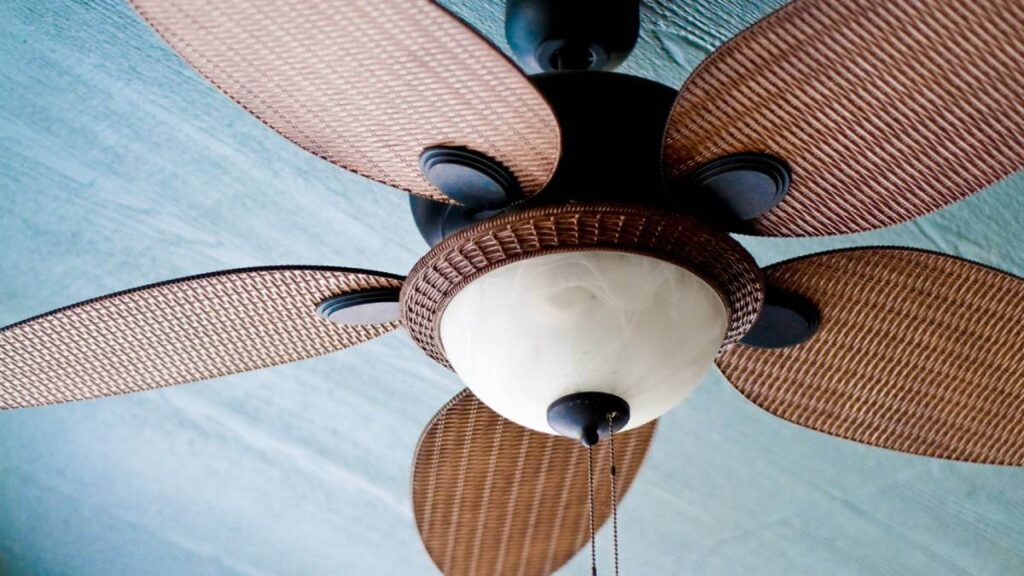When it comes to advice on how to cope with extreme heat, don’t believe old wives’ tales or public health authorities.
The real expert, Ollie Jay, professor of thermoregulatory physiology at the University of Sydney, says sucking on ice cubes and relying on air conditioning doesn’t help.
A fan on a medium setting is more effective.
“When we move air, we increase heat loss via a process called convection,” Prof. Jay told ABC News.
“We actually feel the same as we would with air conditioning at a lower temperature.
“We can get enormous savings from our electricity bill and reduce the number of greenhouse gas emissions by actually increasing that setpoint of the thermostat.”
Heat kills more of us than any natural disaster and costs Australia $6 billion annually, but health advice on how to cope with extreme heat is patchy.
What’s best for older people?
Dr Liz Hanna, from the Climate Change Institute at the Australian National University (ANU), says Australia needs a national approach to heat advice to avoid discrepancies between states. Older people, for example, need specific advice.
“As people age, their body is less able to register just how hot it is and generate thirst in response, meaning the elderly often do not drink enough water,” ABC News reported.
The World Health Organization (WHO) recommends that when the temperature tops 35 degrees, people turn off fans.
Prof. Jay debunks this.
“We’ve actually demonstrated that fans can be very effective providing that people are able to sweat enough to make sure there’s enough evaporation from the skin surface,” he said.
“Humans sweat, and it is by far the most effective way of cooling the body,” says Prof. Jay. “If there is extra air flowing across the skin (from a fan), it helps sweat that would otherwise sit on the skin to evaporate. That’s a good thing, a great thing.
“Fans at any temperature up to 40°, where there is some kind of humidity, are beneficial,” says Prof. Jay. “But as the temperature goes higher, if it’s dry then fans are progressively less useful and potentially detrimental.”
It’s only on days where the temperature is above 43 degrees, with low humidity, that sweat evaporates without needing the fan, so the extra heat is added to the body without the evaporative cooling effect. Only then does a fan have a heating effect.
What doesn’t work
Australian state authorities variously advise putting your pillowcase in the freezer before bed and avoiding high-protein foods such as meat to help avoid heat stress.
None of this will have a measurable effect on body temperature, says Prof. Jay.
Changing the body’s ‘deep core’ temperature is all important to avoid heat-related illness.
“Core temperature is the most important thing when it comes to heat-related illness,” he says.
He suggests keeping the skin moist with a light spray. Putting feet in cold water is also effective.
“Your feet can act like radiators, so you plug them into cold water, and you can lose heat quite effectively that way,” Prof. Jay said.
Dr Alana Biggers explains the process.
“A brain region called the hypothalamus is responsible for regulating body temperature. It checks the body’s current temperature against its normal temperature and then regulates it.
Heat regulation
“When the body is too hot, regulation occurs through sweating to cool it down. When it is too cold, the hypothalamus triggers shivering to warm it up.”
Heat expert Margaret Loughnan, a research fellow at Monash University, told The Conversation that heat-related illnesses occur when heat gain is greater than heat loss. When heat gain from the environment or metabolic processes cannot be effectively dissipated, the resulting illness can range from minor heat cramps to life-threatening heat stroke.
She said those at greatest risk of heat-related illnesses are people aged 65 years and older, babies and young children, pregnant women, breastfeeding mothers, and people reliant on others for drinks and showers.
“Exposure to extreme heat has particularly adverse effects on people with chronic illnesses such as cardiovascular, respiratory or renal diseases, along with diabetes and obesity, and those with mental illness. These people account for a high proportion of the deaths caused by extreme heat.”
During extremely hot weather
- Keep in touch with friends and family, as they may be your lifeline.
- Stay hydrated – drink plenty of fluids even if you don’t feel thirsty, taking small amounts often. Don’t drink alcohol and limit tea and coffee as these are mildly diuretic.
- Stay out of the sun, especially during the hottest part of the day, and do any essential outdoor jobs early in the morning when it’s cooler.
- Use your air conditioner or fans. Cooling one room is easier and cheaper than cooling the whole house. Cool your bedroom two or three hours before bedtime, and open windows for ventilation in the evening when it’s cooler.
- If you don’t have air conditioning, arrange to go to a cool place and leave as early as possible to avoid travelling in the heat.
- Place damp towels around your neck and shoulders to cool yourself, place your feet in basin or bucket of cool water. Cool water is better than icy cold, which causes your blood vessels to constrict and slows down the body’s ability to radiate heat. Be mindful of people who can’t do this for themselves such as disabled people, children, and babies.
- Eat frequent small meals and avoid cooking. Store food in the refrigerator.
- Rest – don’t do unnecessary work, think siesta.
- Listen to the radio and television for heatwave information.
Do you have a plan for extreme heat? Did you know that your ability to register heat is impaired as you age? Share you thoughts in the comments section below.
Also read: Jungle fever, six plants that thrive indoors

